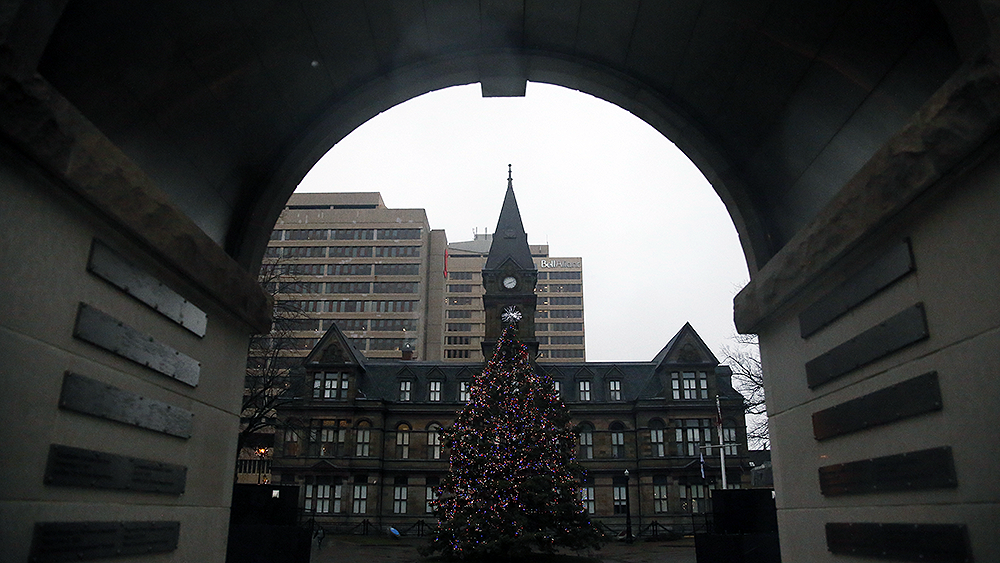Council wants fines for Halifax landlords who make units uninhabitable
‘Cruel’ landlords could be fined up to $10,000

caption
Halifax City Hall in Grand Parade on Wednesday morning.Halifax regional council voted unanimously on Tuesday to ask staff to include harsher penalties for landlords who make units uninhabitable in a pending rental bylaw.
Coun. Waye Mason brought the motion forward saying that there has “been a recent rash of very disturbing” reports of landlords deliberately making units uninhabitable in order to “force” tenants to move out.
“The only role the municipality has is to ensure that the minimum standards are met,” Mason said. He finds it “appalling” that people are openly talking about deliberately making it so these standards are not met.
If landlords cut off the water, take away faucets, turn off the electricity or take the doors off a resident’s apartment to try and get them to move out – which are all incidents that have been reported – they should be fined the maximum amount, said Mason.
The maximum amount the municipality can fine a guilty landlord is $10,000 per day.
These cases, although rare, are plaguing multiple districts of Halifax Regional Municipality. At Tuesday’s meeting, councillors Sam Austin, Patty Cuttell and Pamela Lovelace mentioned incidents of shutting down elevators, taking doors and windows off of apartment units and similar issues.
“The safety and security of our citizens is our responsibility,” said Lovelace. “We should do everything that we can do within our power to ensure that they feel safe and that they are safe.”
Coun. Becky Kent brought attention to the fact that women, single parents and seniors are particularly vulnerable in these situations. She requested that this issue be captured within the report because the treatment of tenants is “abusive” in some cases and women are disproportionately affected.
Although in favour of Mason’s motion, Coun. Trish Purdy voiced concern about protecting landlords from “delinquent” tenants.
“Tenants need to be protected from cruel landlords” but there needs to be “protection on both sides,” said Purdy. “How are landlords going to want to participate in affordable housing projects or developments when there’s no guarantee that tenants will pay, and they don’t have a recourse that is going to help them?”
Coun. Paul Russell stressed that with the new two per cent rent control, the affordable housing crisis will be “exacerbated.”
“Two per cent will barely keep up with the cost of living and the cost of expanding a building, of maintaining a building and doing everything else that is needed for that housing supply,” Russell said.
Despite his worries about housing deteriorating and less housing being available, Russell supported the motion.
Building code, fire, health and life safety are the city’s job, said Mason, tenancy issues are not.
“If that’s not being met and if we’re not ensuring it’s being met, we aren’t doing our jobs.”
